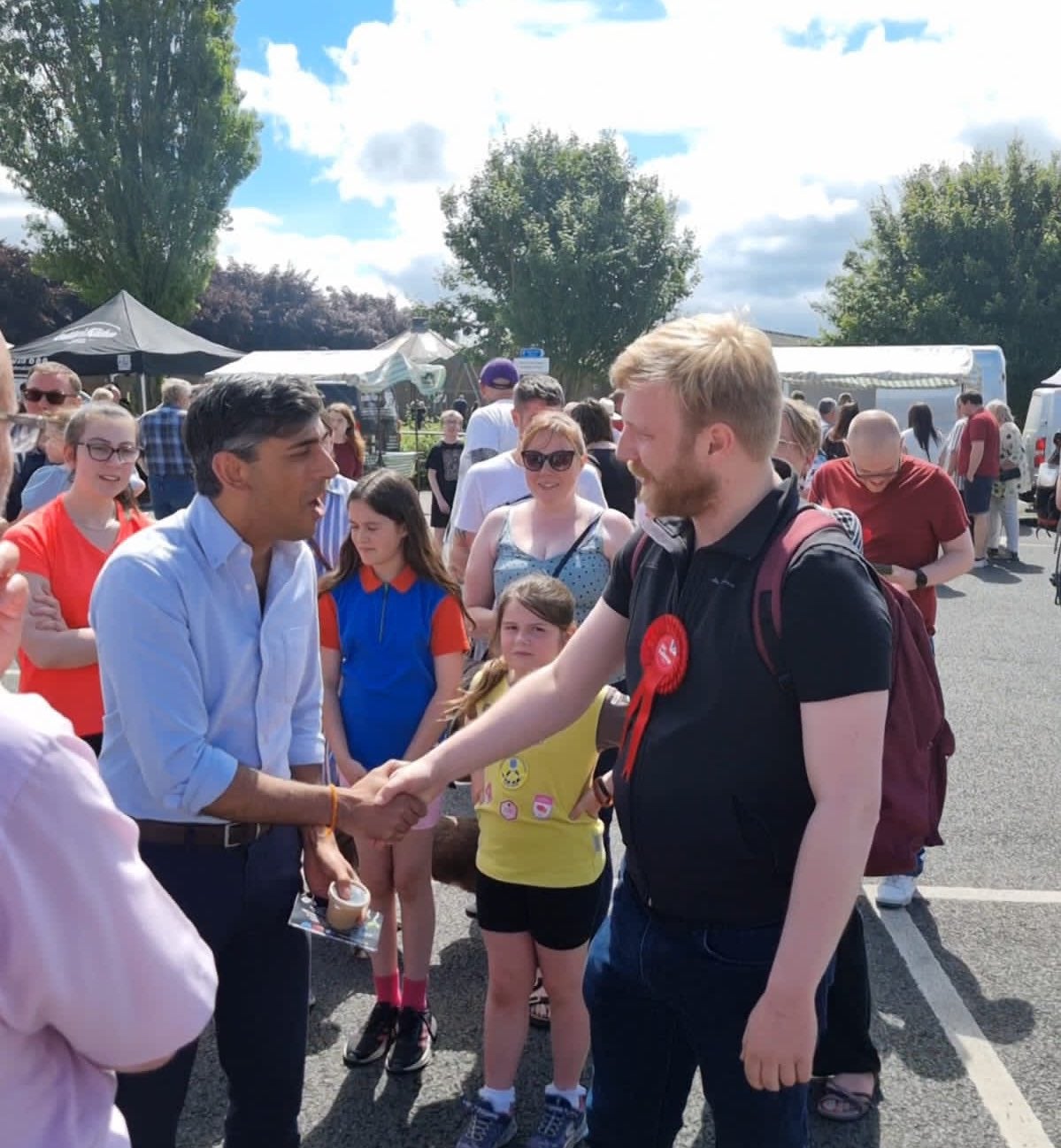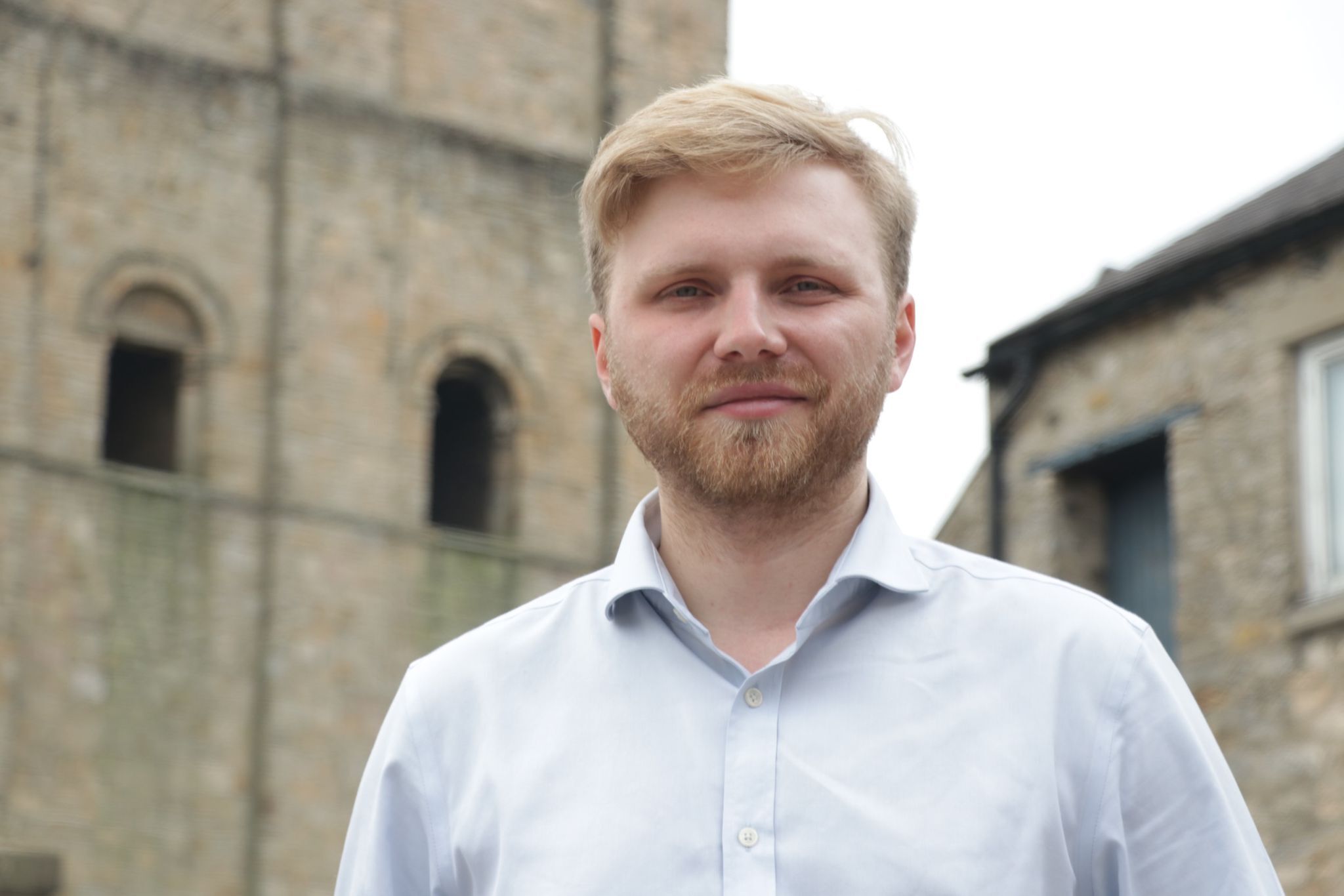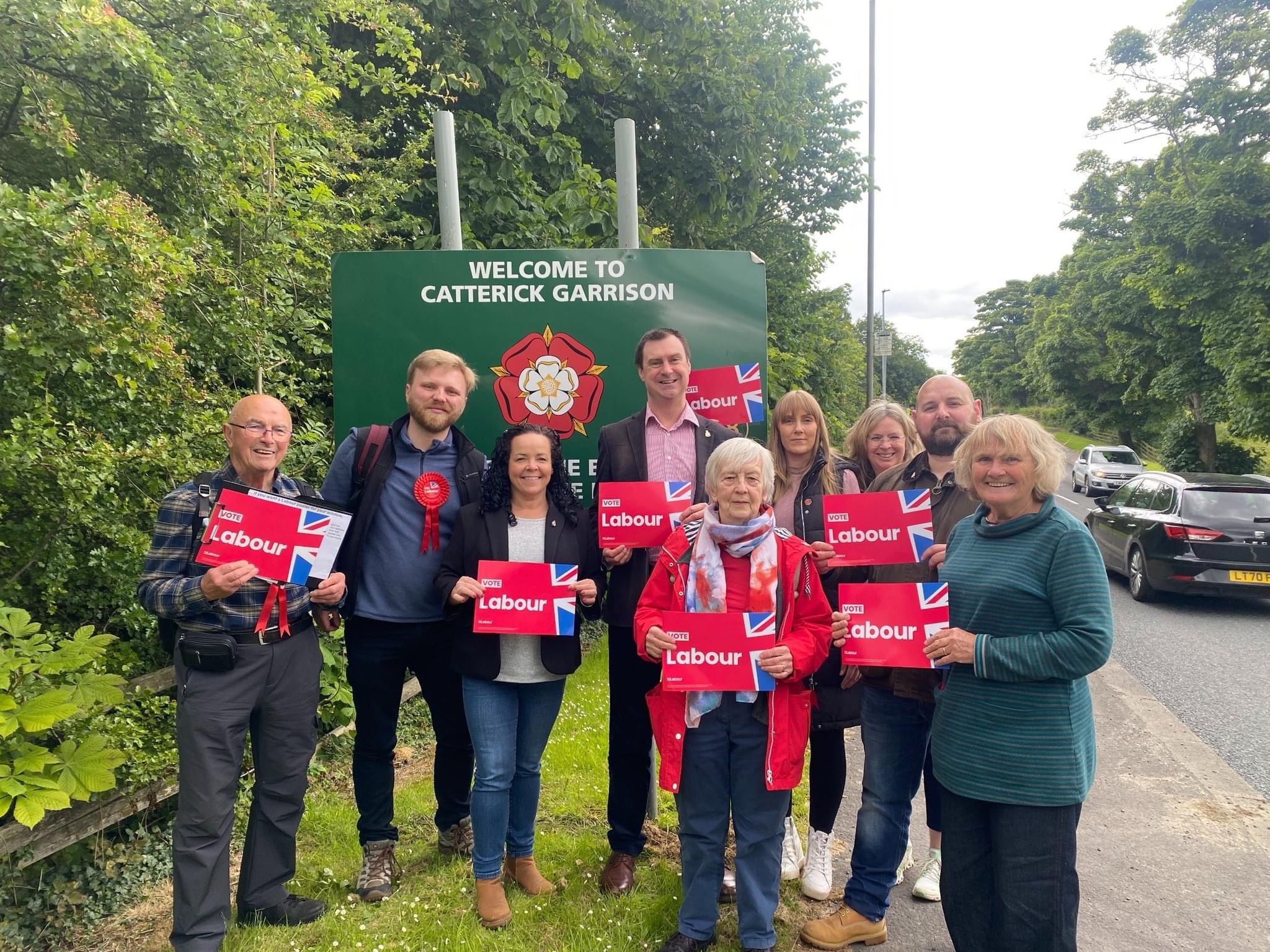Meet Rishi Sunak’s Labour Party opponent who hopes to bring the PM down
Exclusive: The Labour candidate hoping to become the first person to defeat a sitting prime minister explains why rural England is abandoning the Tories
Your support helps us to tell the story
From reproductive rights to climate change to Big Tech, The Independent is on the ground when the story is developing. Whether it's investigating the financials of Elon Musk's pro-Trump PAC or producing our latest documentary, 'The A Word', which shines a light on the American women fighting for reproductive rights, we know how important it is to parse out the facts from the messaging.
At such a critical moment in US history, we need reporters on the ground. Your donation allows us to keep sending journalists to speak to both sides of the story.
The Independent is trusted by Americans across the entire political spectrum. And unlike many other quality news outlets, we choose not to lock Americans out of our reporting and analysis with paywalls. We believe quality journalism should be available to everyone, paid for by those who can afford it.
Your support makes all the difference.The man who could become the face of the greatest shock in British political history has claimed that whether he wins or not, there is a “bubbling undercurrent” of change in the electorate which means once safe Tory strongholds will fall.
Tom Wilson is the 29-year-old Labour candidate running against Rishi Sunak in Richmond and Northallerton who, according to polls last week, could be the first electoral “king killer” – in that he may be the first person to defeat a sitting prime minister in a general election.
He became a person of interest for the entire political establishment when an MRP poll last week suggested Mr Sunak’s constituency was “too close to call”.
For everyone looking for the so-called “Portillo moment” of this election – named after the shock defeat of Michael Portillo in the 1997 Tory collapse – this looked unbeatable.

In his first major interview with a national newspaper, Mr Wilson told The Independent that the feedback he is getting on the doorstep in the Yorkshire constituency he grew up in suggests that the ultimate electoral shock may be possible.
But the fact that the Tories are reportedly sending extra bodies to help the prime minister hold on to a seat he won with a majority north of 27,000 in 2019 is a victory in itself.
“It feels like years ago [when] I first made my application,” Mr Wilson told The Independent. “It was very much about making them work for it. And actually, we’ve already achieved that. So yeah, in that sense we’ve already won.”
He laughed about the prospect of activists being bussed up from CCHQ in London to save the prime minister.
“There’s rumours, isn’t there? I’m yet to see a bunch of suited types lost in the dales.

“They’re clearly restricting things to higher ground [with] the story about supposedly bringing resources out of seats with majorities of up to 7,000.
“We have to treat that almost as a bit of a ruse. There’s no reason they necessarily are going to tell everyone that they’re doing this. We can’t be complacent.”
Mr Wilson met the prime minister briefly on Sunday, shaking hands while both out campaigning in the constituency. There was another awkward moment at a show where he was running an allotment stall while Mr Sunak was doing a tour.
“I guess the first time I meet him properly will be at the count,” he said.
Richmond and Northallerton is a vast, sprawling rural seat, the second biggest in land area in England. But what is going on there is reflected elsewhere in that suddenly Labour – always seen as an industrial or metropolitan party – is speaking to the rural vote as well.

In Norfolk South West, Mr Sunak’s predecessor Liz Truss is fighting for her political life and just last week the prime minister took his battle bus to Sir Geoffrey Cox’s seat in west Devon which had a majority of more than 25,000. One of the MRP polls, in fact, had blue East Anglia painted almost entirely red last week.
Sir Keir Starmer has become the first Labour leader to don his wellies and tramp into Tory farmland territory proclaiming “rural communities are in my DNA”.
It is a change that Mr Wilson senses as well. He has found that there are deep concerns about services in traditional Tory heartlands like his constituency, not least the closure of a hospital which will force people to travel to Newcastle or Leeds for treatment. It perhaps sums up most of all why Labour is picking up votes in rural communities.
“There is a bubbling undercurrent of quite poor people in vulnerable situations in this constituency – being rural magnifies every problem,” he said.
“Because not only have you got to worry about whether the ambulance can get to you on time, it’s also that you’re so much further away from the hospital when you take a stumble or when an elderly relative lives in a tiny little village in the dales – there’s a real concern there that they’re not going to get the treatment they need.

“And because it’s rural, you can't always guarantee that you can live near your family. And so there’s, yeah, there’s this huge discontent.”
Mr Wilson said the surge in support for candidates like him is often based on “hope”.
“People seeming to lose hope seems to be a running theme in this election, and being able to present your ideas for a kind of credible plan to help them directly, and just giving people that time, you can start to see people maybe rediscover a bit of that hope,” he said.
After 4 July, Mr Wilson very much hopes that he will be the new MP for Richmond and Northallerton but admits he sometimes wonders if he is “daydreaming”.
“It’s quite incredible, isn’t it? But if you get too lost daydreaming about it, then it’ll never happen.
“The fact that it seems to be in the range of possibilities is motivating. Like I say, a lot of people have thoroughly been consigned to the Tories always winning, and now think that this is an opportunity for change, not just here in the prime minister’s seat, but across the country.
“No voter fits easily the kind of boxes or demographics that the national analysis of elections tends to put people into. Everyone’s their own individual, they all have their own priorities and their own issues.”
The prime minister’s campaign missteps have also had an impact on his local seat, not least the anger over him returning early from the D-Day commemorations with Catterick garrison based in the seat.
But for Mr Wilson, who works for the NHS, it was the way David Cameron and George Osborne’s austerity in the coalition government thwarted his dreams of becoming a musician that got him into politics.
“When I was a teenager I wanted to become a musician, first and foremost, and I was learning how to play the drums and bass guitar at a music centre in Darlington. But in the Cameron era the local council suddenly had a black hole of however many tens of thousands of pounds.”
He became involved in a campaign to save the centre and when that was not possible “it became a fundraising campaign with the local councillors across the board. Then it was very shortly after that that first I joined the Labour Party.”
He has, though, very much got the election bug whatever the result.
Mr Wilson added: “I’ve really enjoyed it, naturally, the experience of being a candidate and talking to people, where they may open up to a candidate in a way that they don’t open up to your average campaigner or your canvasser. It gives you such a window into people’s lives.”

Join our commenting forum
Join thought-provoking conversations, follow other Independent readers and see their replies
Comments